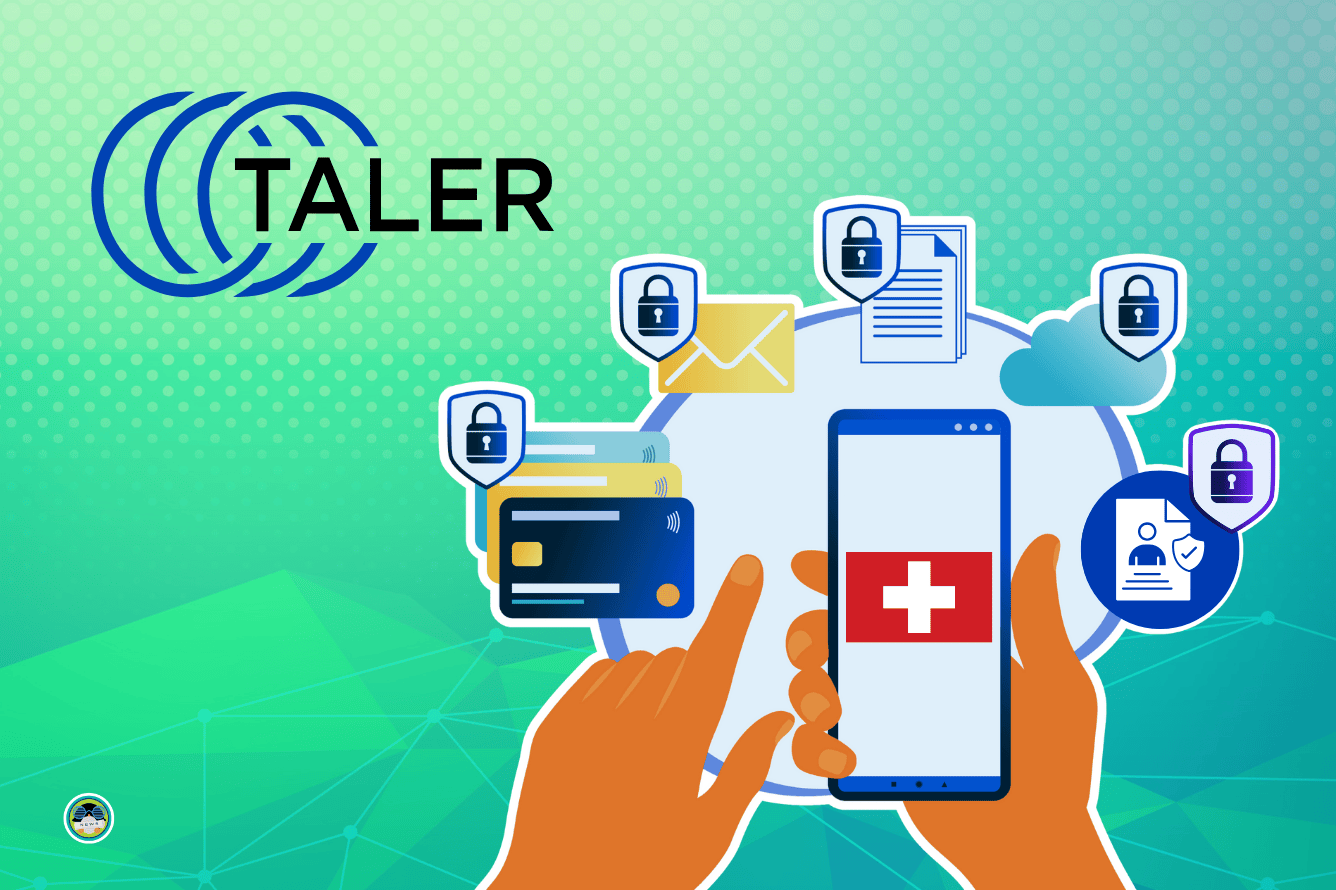GNU Taler begins operating in Switzerland, distributed by the Taler Operations AG. Gnu Taler aims to be a “digital wallet” and has been used by the swiss national bank as well as the european national bank as a example for how a digital currency handed out by the state could work. It aims to be as privacy preserving as cash for the buyer while not allowing the seller to evade taxes.
Currently the Taler is brought out by a special organisation, the “Taler Operations AG”, and not the national bank, although both the national bank as well as the Taler Team have shown interest in a official digial currency by the national bank based on the Taler. But we need to relativate as the national council has stated that the introduction of a digital currency would probably take relatively major legislative changes and therefore take a bit of time.
I looked at this a looong time ago, but the basic idea is that the tokens (equivalent to cash coins/banknotes) are generated on the end user’s device, through some public-key cryptographic back-and-forth protocol. The issuer (bank/central bank/payment provider) does not see these tokens (they’re only on the end users device), but can verify that they’re legit (i.e. issued by them) somehow.
You can take one of these tokens to them, and deposit it in an account. They won’t know who it’s from but they know it was legitimately issued by them. Depositing a token is also supposed to be the only way of figuring out if it is a legit token, the bank will not tell you if a token is legit unless you deposit it.
When someone pays with these tokens in a shop, the shop will want to immediately (during checkout) deposit them, to make sure they’re legit, and also to make sure the token hasn’t been double spent. A shop that doesn’t do that makes itself vulnerable to fraud. This means shops will have a hard time hiding their revenue (to dodge taxes) compared to cash.
If someone you trust gives you a token (birthday money from your grandma, say), you don’t have to immediately deposit said token, since presumably you trust your grandma to not give you fake or double-spent tokens. Since you trust you grandma, there is no need to deposit the token and involve the bank, and that transfer would be untraceable (it’s literally just copying a number from her phone to yours).
The idea is that shop owners would have a hard time dodging taxes without opening themselves up to fraudsters using fake tokens, while the customer cannot be identified. You’d also be able to exchange tokens with family and friends in a way that isn’t traceable, as long as you trust them to not screw you over.
Could this be scaled to other European countries?
Shouldn’t we gather feedback first from that experiment before scaling up?
Been waiting for Taler for ages. I’m ready now, you wait 😝
I don’t necessarily have to wait, it’s more a generic advice.
Can you please expand though, as I’m curious, why you won’t wait and you plan to use it?
Can you also comment on my follow up question, namely what are the limitations at the moment, both technically and legally? Basically does not living in Switzerland make a difference anyway for users?
It was mostly a playful comment on my part (indicated by the emoji) - I’ve waited this long so they might as well do it properly.
I would like to buy products/services online privately, “using cash” as it were. I also value software freedom and the Taler client is GPL. The API is LGPL but hopefully I can avoid using proprietary software for transactions.
I looked into setting up a method of donations on itch.io when I was focused on that hobby and the options of PayPal or Stripe just felt icky. I don’t want to use them, or encourage others to do so.
Digital currency without “blockchain”, say it ain’t so! This is why I think it might actually work. It’s not based on some kind of Rube Goldberg experiment to run the world power into nothingness.
Is Taler decentralized?
Customers will use traditional money transfers to send money to a digital Exchange and in return receive (anonymized) digital cash. Customers can use this digital cash to anonymously pay Merchants. Merchants can redeem the digital cash for traditional money at the digital Exchange. As Merchants are not anonymous, they can be taxed, enabling income or sales taxes to be withheld by the state while providing anonymity for Customers.
The digital exchange seems to be centralised.
This is even worse that the current system as it essentially means flat tax regardless of your income. This means a poor person is paying the same income tax through purchasing items at a store who will be on the hook for the taxes so naturally will pass on to you and at the same time a rich person will pay the same price and tax. Further since it is centralized all the same issues of corruption and exploitation exist even if the intent today is good.
Homie you just described sales taxes which are already a thing



